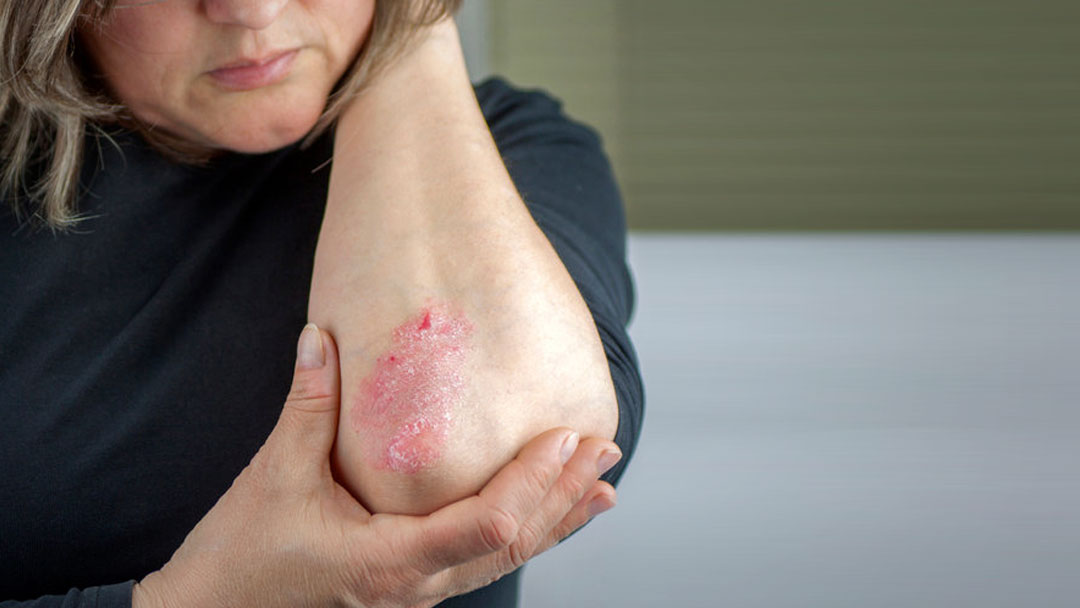Psoriasis is an uncomfortable skin condition that can start at any age. Knowing the symptoms and the best treatment options can be important.
Psoriasis causes people to have red, dry, flaky patches on their skin. Often on their scalp, elbows, knees and lower back. Though the location and severity vary from person to person.
What is important to understand, is that this is not ‘just’ irritating. Having psoriasis can have an emotional impact too. Such as it can make people embarrassed and it leads to misconceptions that it’s contagious (which it isn’t).
Causes and symptoms of psoriasis
Psoriasis is linked to your immune system.
What normally happens is your skin replaces cells gradually. With this condition, the process goes too fast, leading to a build-up of skin cells which then flake off, creating a scaly appearance. On pale skin tones, the patches can look red and on darker skins the areas of psoriasis look even darker.
Why this happens is hard to pin down but could be linked to genetics. Triggers include injuries, stress, hormonal changes, or the effects of medications and infections.
It is often very itchy! Even if you resist the urge to scratch, psoriasis patches can be sore.
Some people have temporary flare-ups, then no or few symptoms for a while. Others have severe and widespread psoriasis that affects their quality of life.
Diagnosis and treatment for psoriasis
In most cases, one of our empathetic private GPS can identify psoriasis during an initial examination. Occasionally tests are used to rule out other medical issues affecting skin health.
We can refer you to a skin specialist, or to a rheumatologist if there are indications you’re developing a complication known as psoriatic arthritis.
There is no cure for psoriasis, but our GPs can help you find the best ways to manage your skin health. Including effective topical treatments (creams and ointments applied to the skin). There are options containing vitamin D and corticosteroids to tackle psoriasis.
The starting point is to make an appointment with our doctor to find the cause of dry skin patches.



